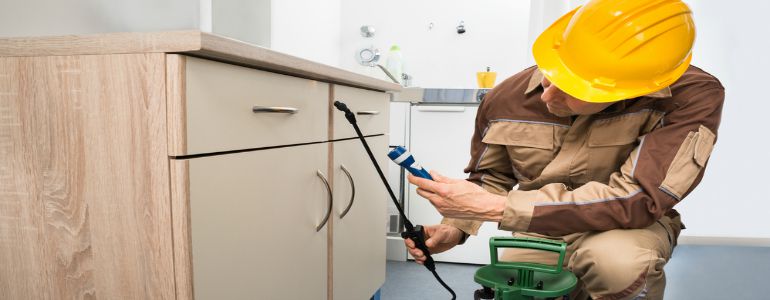Specialist Bug Control Techniques for Long-Term Outcomes
In the world of pest control, attaining continual efficiency and lasting results calls for a careful technique that goes beyond simple extermination. Professional parasite control techniques envelop a detailed method that starts with a comprehensive assessment and analysis, adhered to by accurate pest recognition to recognize their actions patterns. The application of Integrated Insect Management (IPM) principles, paired with eco-conscious therapies, develops the cornerstone of sustainable pest eradication. However, real test lies in the recurring tracking and maintenance of the dealt with locations, making sure a pest-free environment for the direct future. By diving into the complexities of these strategies, a deeper understanding of expert bug control approaches for enduring outcomes emerges.
Assessment and Evaluation
Upon getting in a residential or commercial property for bug control solutions, the first action is an extensive assessment and analysis to recognize the level of the infestation and figure out one of the most reliable therapy plan. Expert parasite control professionals are educated to diligently examine the premises, looking for signs of parasite task such as droppings, munch marks, nests, or any kind of architectural damages. They will certainly likewise assess the conditions that might be bring in bugs, such as food sources, water leakages, or access points.

Bug Recognition and Behavior

Furthermore, understanding the behavior of the recognized pest is key to executing efficient control measures. Knowing where parasites nest, what they feed on, and their activity patterns can help pest control specialists design methods to eradicate them successfully.
Integrated Insect Administration (IPM)
Integrated emergency pest control Parasite Monitoring (IPM) techniques combine numerous methods to regulate and stop pest invasions in a sustainable and eco friendly fashion. bed bug treatment. By incorporating techniques such as organic control, habitat adjustment, alteration of cultural techniques, and the use of immune varieties, IPM intends to reduce using chemical pesticides
One of the vital concepts of IPM is the emphasis on prevention. This proactive approach includes monitoring bug populations regularly to find any prospective concerns before they escalate. By identifying bug troubles beforehand, pest control steps can be applied promptly and successfully.
In addition, IPM promotes the usage of safe parasite control methods whenever possible. This can consist of using all-natural killers of the pests, presenting useful bugs, or utilizing scents to interrupt mating patterns. By minimizing dependence on chemical pesticides, IPM not just secures the setting however additionally aids preserve a balance in the environment.
Environmentally-Friendly Therapies
Applying eco-conscious approaches in pest control procedures can efficiently deal with infestations while prioritizing ecological sustainability. Environmentally-friendly therapies focus on lessening the effect of parasite control techniques on environments, non-target organisms, and human health and wellness.
One more secret element of environmentally-friendly treatments is using organic and eco-friendly items that break down rapidly without leaving damaging deposits in the atmosphere. Botanical pesticides acquired from plants like chrysanthemums or neem use efficient pest control while posing marginal danger to non-target types. In addition, utilizing approaches like warmth therapies or pheromone catches can target certain pests with accuracy, decreasing the general ecological effect of pest control techniques.
Recurring Monitoring and Maintenance
Normal examinations by experienced professionals are required to identify any kind of indications of pest activity, analyze the efficiency of previous therapies, and make modifications to the pest control strategy as needed. By keeping track of parasite populaces over time, pest control specialists can track patterns, anticipate possible issues, and implement preventative steps to minimize the threat of future invasions.
Along with surveillance, maintenance techniques are essential for lasting bug control success. This includes executing proper sanitation procedures to get rid of potential food and water sources for parasites, termite prevention treatment sealing off access points termite control pesticides to prevent insects from getting in the facilities, and dealing with any type of structural problems that can facilitate insect problems (pest control). By incorporating continuous surveillance and upkeep into an integrated parasite management technique, services can make certain a pest-free environment and protect their residential or commercial property against pricey damages and wellness risks
Final Thought
Finally, making use of specialist bug control strategies such as comprehensive evaluation and evaluation, precise bug identification and understanding of their habits, integrated insect administration methods, environmentally-friendly therapies, and continuous tracking and maintenance are important for accomplishing lasting outcomes in parasite control. By implementing these methods, people can properly take care of bug problems and keep a pest-free atmosphere in a lasting manner.
Comments on “Comprehensive Pest Control Services: Keep Your Building Pest-Free!”